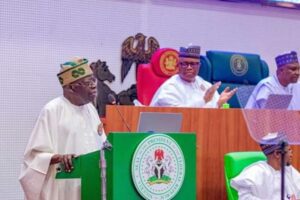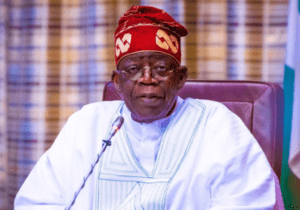
ASUU, FG Tussle: Nigeria may not recover long time from impacts of incessant strike – Experts
…Say things may not get back to normal for students, lecturers, upon resumption
BY Deborah Onatunde
The popular saying by John F. Kennedy, “those who make peaceful resolution impossible will make violent resolution inevitable”, can be fused into Nigeria’s present plight of the tussle between the Academic Staff Union of Universities (ASUU) and the Federal Government.
Since Nigeria’s independence in 1960 the tertiary education system has experienced an imbalance in it’s sequence of operation with doses of strikes and unattended grievances largely termed unrealistic by the Government, as ASUU terms the Government as been insensitive.
In the quest of defending it’s union welfare and plight, ASUU had earlier embarked on an incessant industrial action orchestrated due to collapse of agreement between her and its employer (Federal and State Governments), threatening the breeding of its manpower.
However, there seem to be no traceable success accompanying the ASUU industrial action except for dead ends.
Having examined the reasons for ASUU Strike and the Government responses, Nigerian NewsDirect digged deep on the implications of the industrial strike by both actors on the stalkholders, particularly the students.
According to the National Universities Commission (NUC), there are fifty-seven (57) State universities with One Hundred and Eleven (111) Private institutions in Nigeria.
Giving this ratio shows that there are more private institutions than State institutions in Nigeria; even with the faction public universities students are always frustrated due to elongated study period.
In an interview with Newsdirect, an education expert, Mr. Sola Oni, said the Government is downplaying the importance and essence of education, as he held that it is frightening that the government allowed ASUU embark on a strike for almost six months.
He further called the tussle “a war towards Education by the Government.”
Oni stated that the assurance of students going back to school after the strike is not guaranteed as some would have engaged in illicit act, while some may no longer find the relevance of schooling again.
“The Government is downplaying the importance and essence of Education in Nigeria. It is frightening that the government should allow ASUU go on strike for almost six months and it means by the time school resumes all our students would not go back to school because some may have joined yahoo (internet fraud) or feel what is the basis to go back to the university. This is a war on education by the Government,” he said.
However, Oni admonished the Government to take “the bull by the horn” and address its trust deficit arising from the 2009 agreement with ASUU, as he argued that for any nation which aims to aspire and move to the next level, it’s education must be prioritised.
“The Federal Government should at this juncture take the bull by the horn and address its trust deficit arising from the 2009 agreement with ASUU.
“The ongoing strike has dire consequences on the quality of our graduates in the public universities and ratings of our universities globally. More importantly, nobody can give what he or she lacks,” he said.
Mrs. Lasisi Oyegbemi a lecturer from the Olabisi Onabanjo University made it known that the strike broke out after numerous warnings, but yet no response.
She argued ASUU is not at fault but the insensitive Government of the day, lamenting that students’ time is been wasted as it is saddening that lecturers and students wake-up every morning with no sensee of purpose to follow.
“This strike broke because salaries and arrears were not been paid due to the fact that the federal government did not give any response. Students’ time are been wasted, as it is saddening that our students and lecturers wake up each morning with no sense of purpose to follow,” she said.
An History and International Relations Lecture from Obafemi Awolowo University mentioned that no school in the world would embark on a strike this long.
He said there is a huge possibility of things not returning to how they were before the strike, as students may get used to it or possibly looking for educational opportunities, while some may get married.
“There’s no university system in the world that would close for so long and it seems as if it won’t end. The truth of the matter is by the time they call off this strike, things may not likely be the way it was before the strike. Most of the students that are now at home may find themselves in different circumstances that would warrant them not to go back
“If the university is closed, the labs are also closed; it may mean that things maybe be delayed. And in some cases, the lecturer that is not at work would have low productivity. The truth is that it all has negative impacts and the country might not recover from it,” he said.



